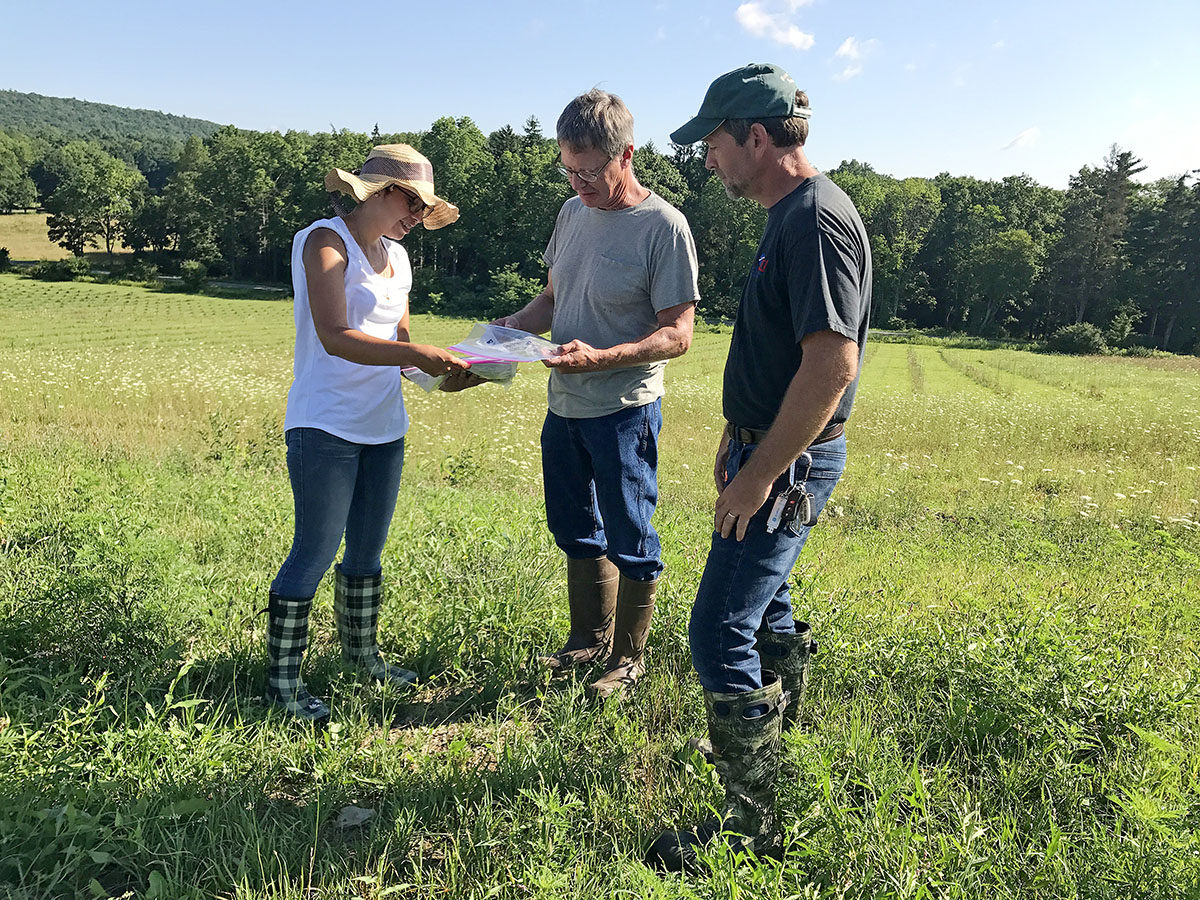An Organic Grape Growing Experiment
Planting Verona Grapes in Pennsylvania
A Sustainable Agriculture Research and Education (SARE) Project
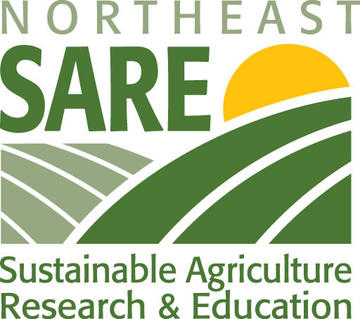
Many farmers say it's impossible to grow grapes organically in northeastern Pennsylvania's cool, wet climate. But we don't believe in the word impossible!
So, we were thrilled to work with SARE on an organic grape growing experiment. SARE invests in groundbreaking research to find innovations and improve American agriculture.
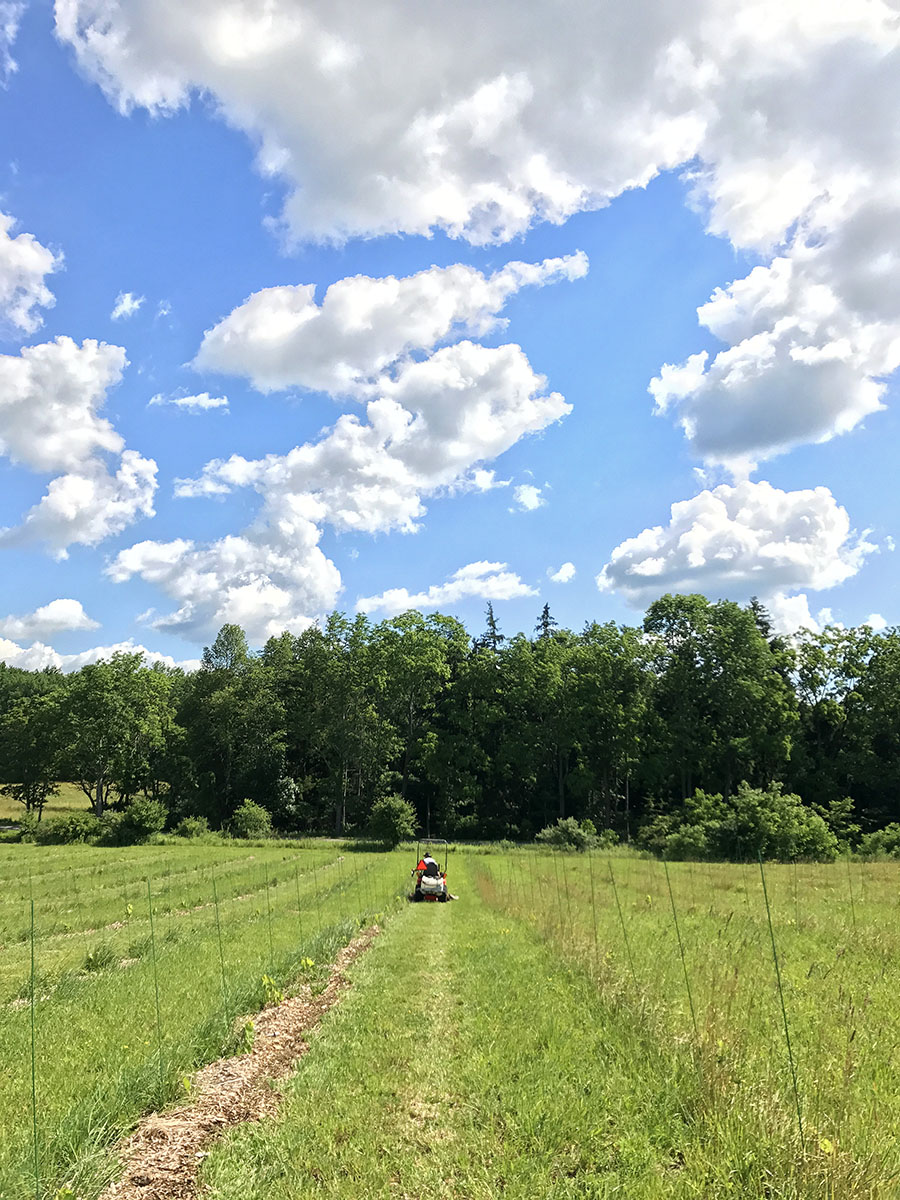
The Problem We'd Like to Solve
We work to operate as sustainably as possible here at Mountain View Vineyard in the Poconos. With grape farming, that's not always easy. Classic European vines (called Vitis vinifera) don't grow very well in our region. Many farmers who choose to grow them have to spray them with chemicals frequently to prevent disease development in our wet climate.
To avoid that, we grow hybrid grapes. Producers splice different varieties together to breed cold-hardy varieties that can stand up to Pennsylvania weather. While we have had great success with making wine from hybrids, many of our customers say they would still love us to make those classic-tasting wines.
Verona - A Cold Hardy Hybrid Grape Vine
We think we may have found a solution! Breeder Tom Plocher has developed a new grape variety called Verona. Testing in Minnesota has shown that it is a cold-hardy grape that produces vinifera-like wines.
Wines and Vines magazine wrote, "[Verona red wines] have a good balance between acid, tannin, and alcohol." Additionally, rosé wines from Verona have, "lush vinifera-like fruit, good balance and finish."
If we can grow this grape without harsh chemicals, it can change the winemaking game not only for us, but for farmers all across the region. Consumers will be able to enjoy classic European wine flavor from grapes grown sustainably (and if we're lucky, organically) in their own communities.
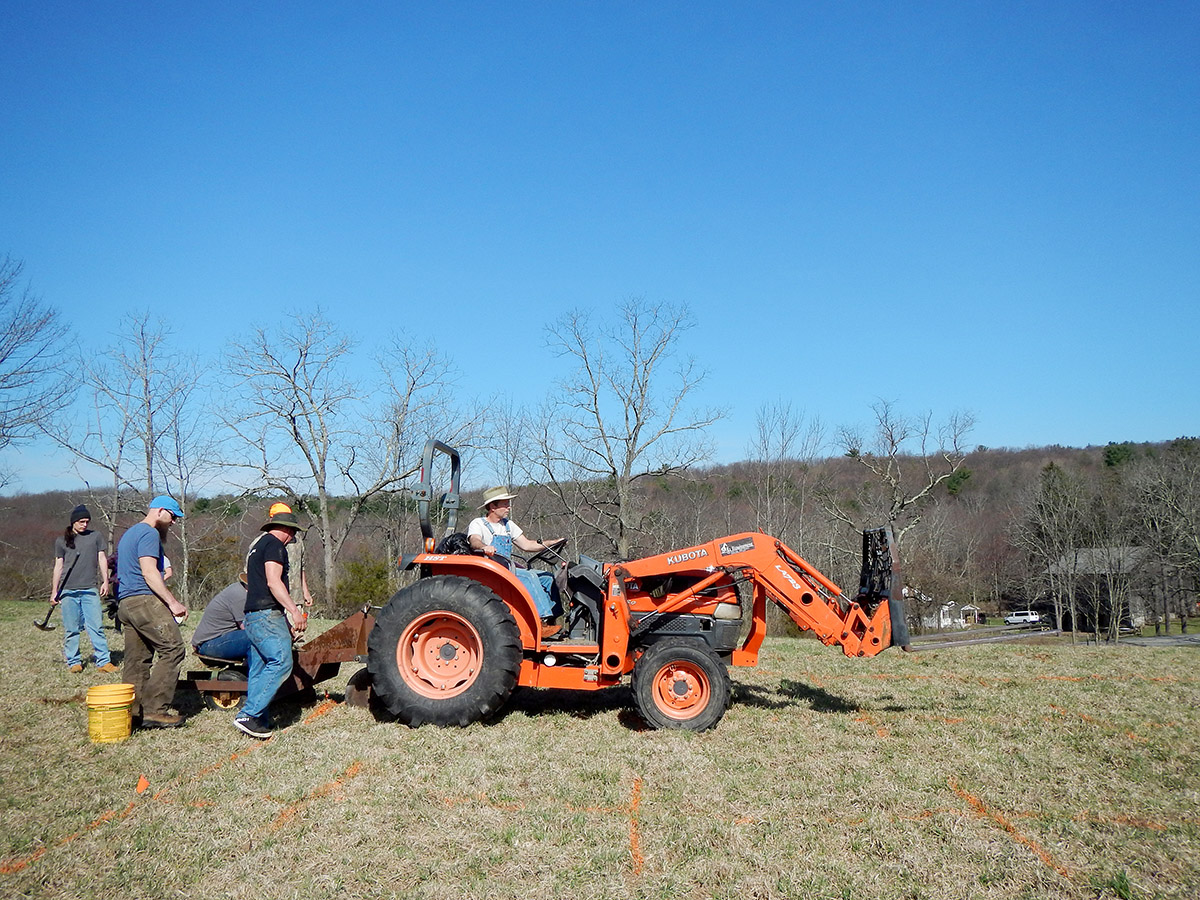
Planting An Educational Experience
We are so excited about the potential of this experiment, that we invited some students along for the ride. Students from the Environmental Sciences class at Northampton Community College helped with the planting this April.
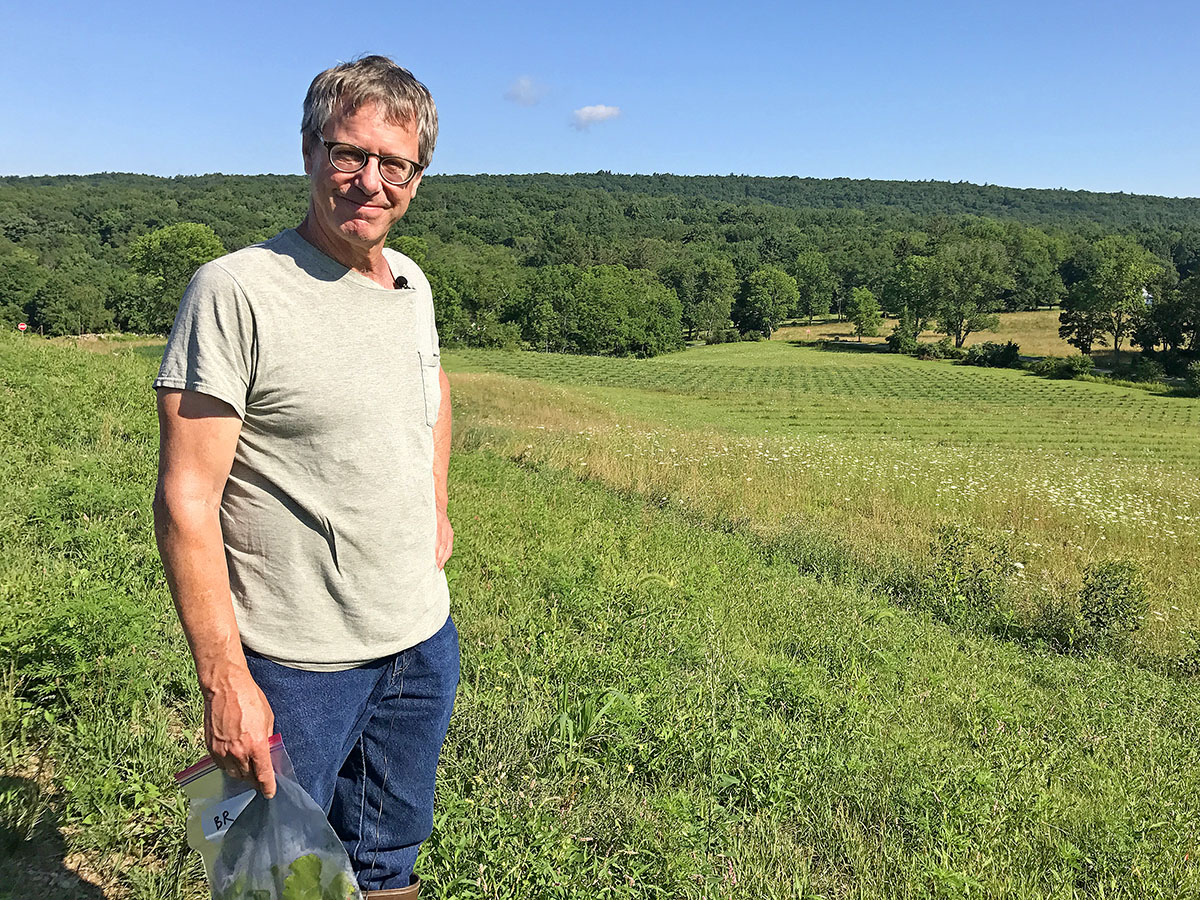
Expert Help
Penn State Research Technologist Bryan Hed served as our technical advisor. He's an expert in plant pathology who works at Penn State's Lake Erie Grape Research and Extension Center.
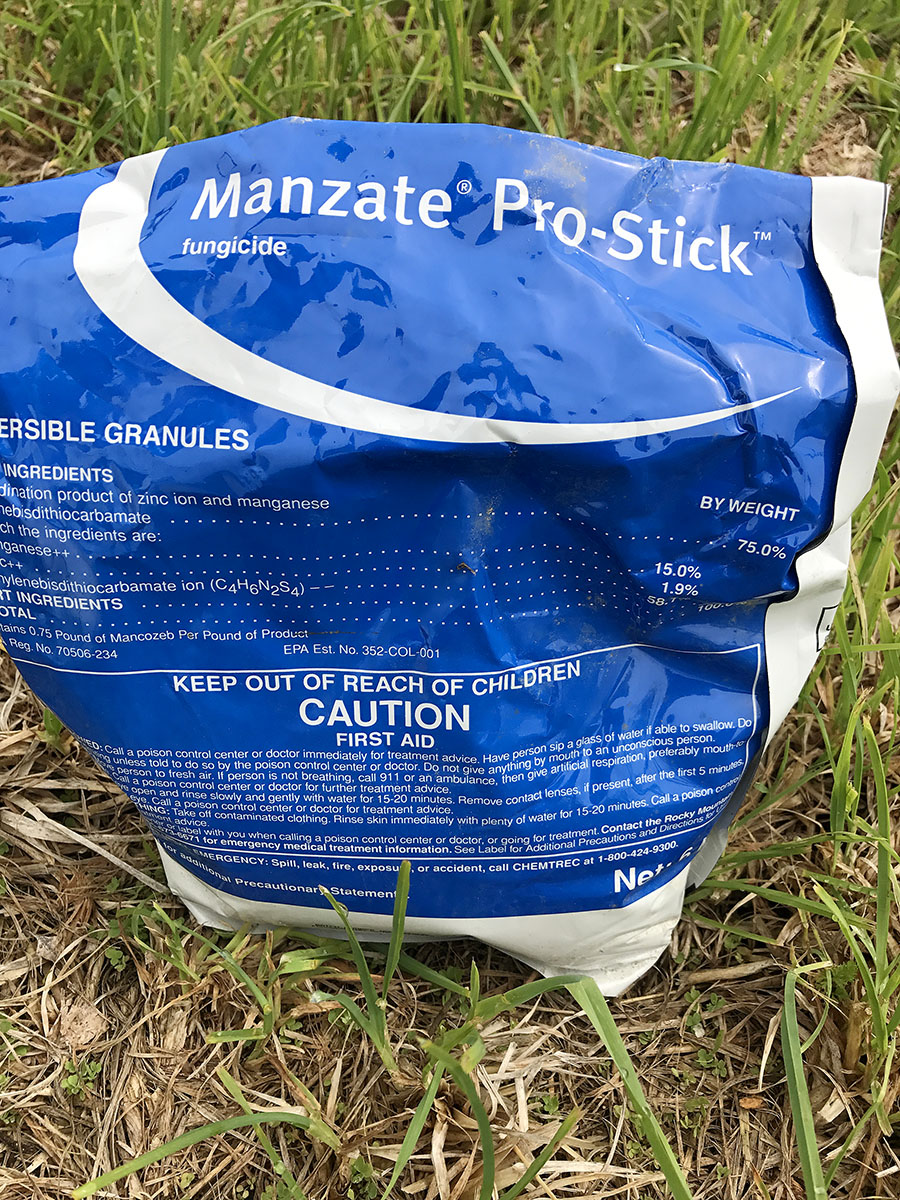
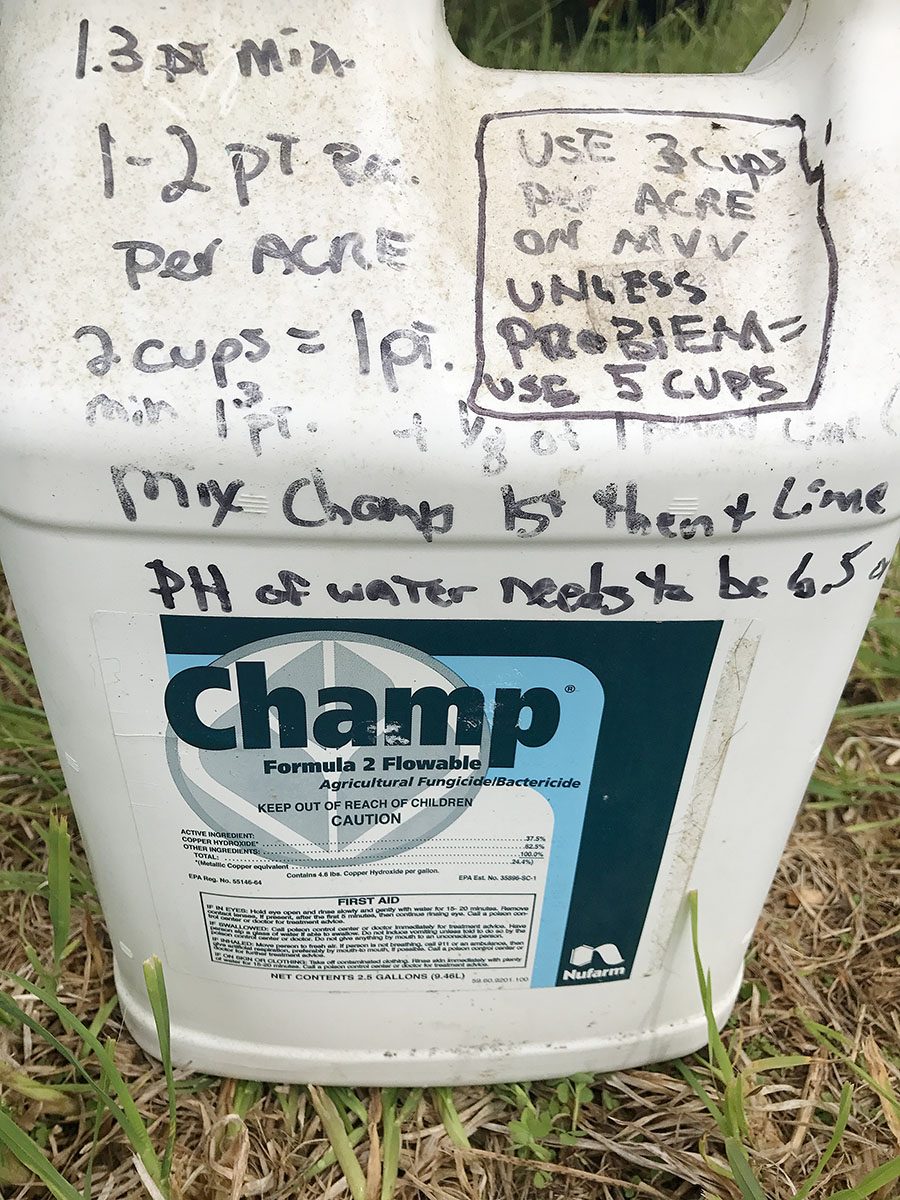
The Experiment
Hed helped us to plan an experiment with an organic plot of 1,000 vines and with a control plot of 1,000 vines. Each plot contained 15 rows with about 66 plants per row. We sprayed each plot three times during the growing season. Each received a different type of spray. An atomizer helped us to precisely control application to prevent overspray and run off.
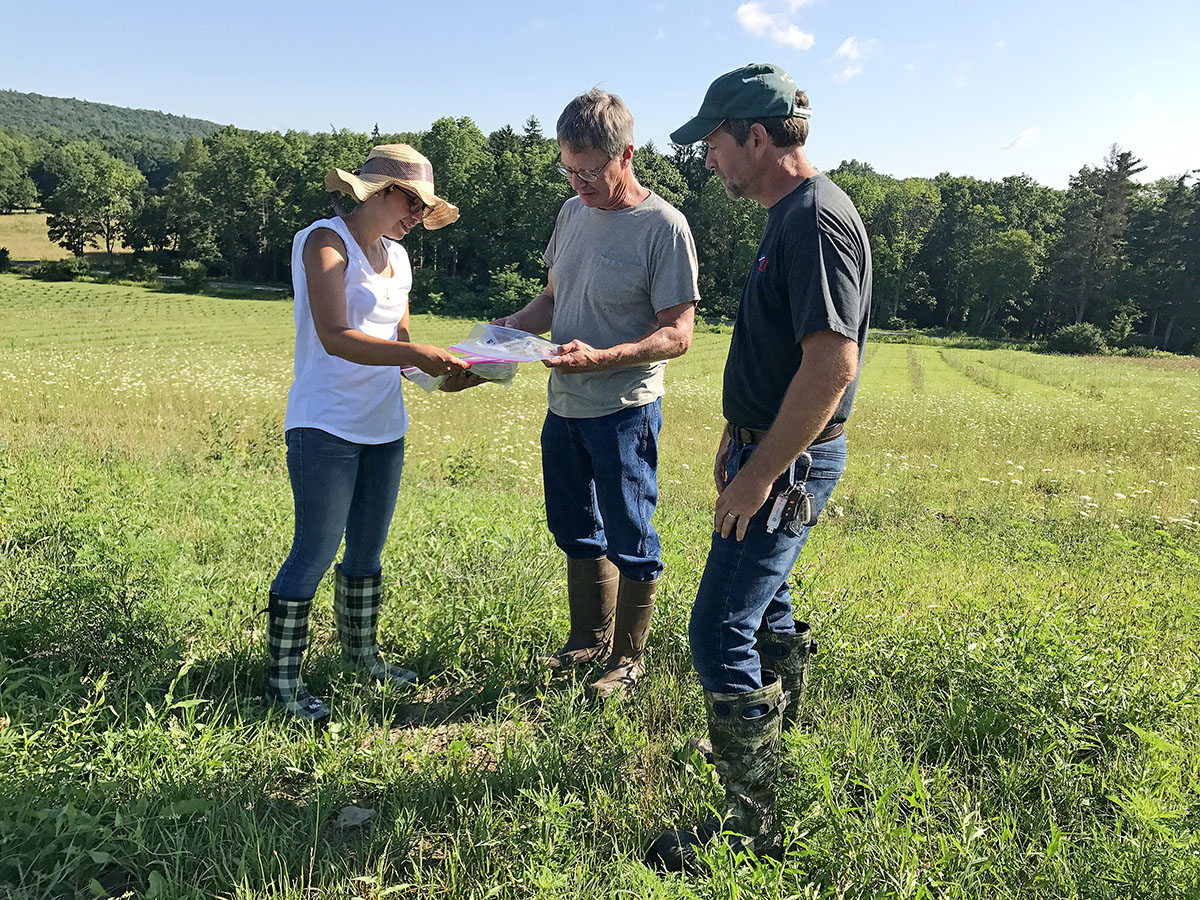
Two Test Blocks
Organic Block
The organic block received certified organic Champ Formula 2 Flowable (Copper Hydroxide) spray.
Control Block
The control block was treated with a minimal amount of a synthetic formula called Mancozeb Manzate Pro-Stilk.
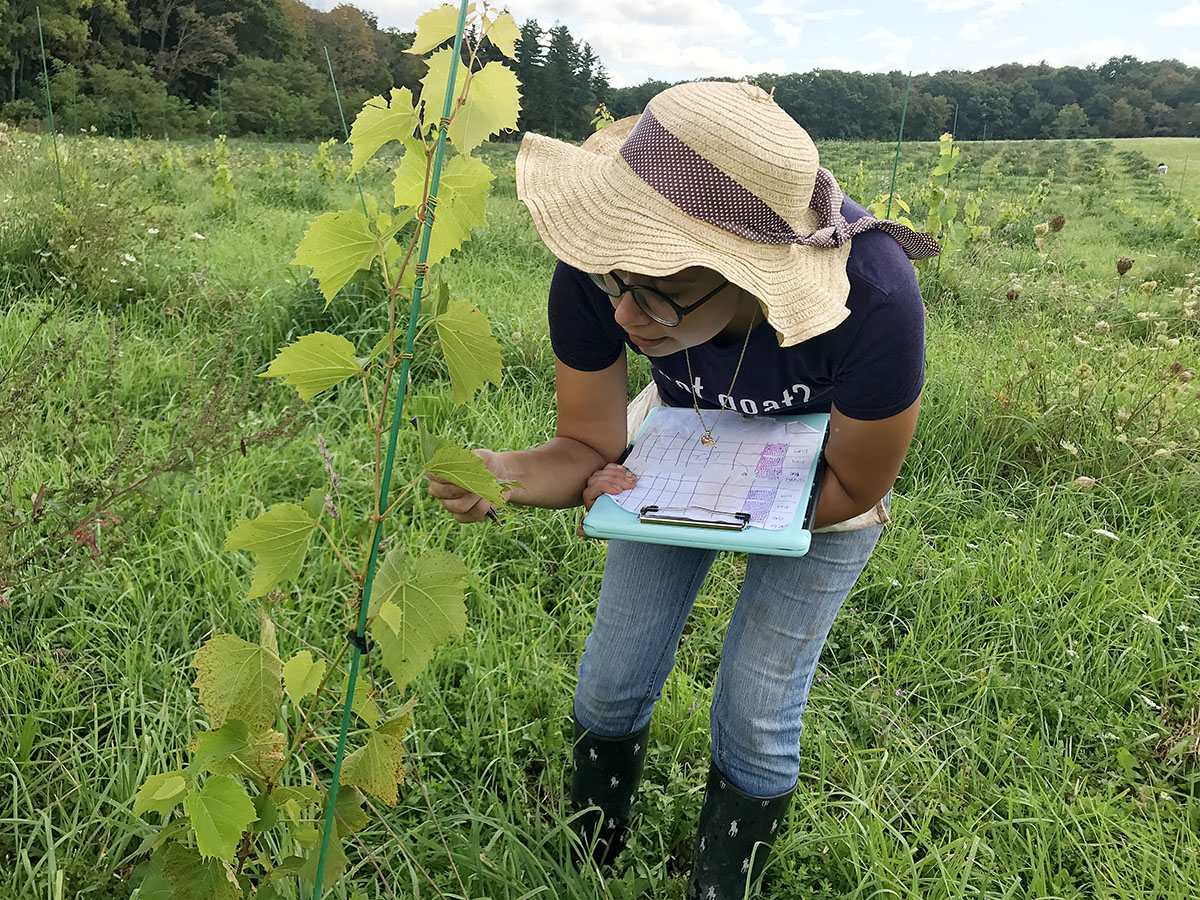
Disease Assessment
Hed set up a disease assessment system for us and taught us how to measure any disease that might show up on the vines. Every week throughout the growing season, we analyzed about 300 leaves.
We collected data from the outer ten rows of each block using the Barratt-Horsfall Scale. It's the system Penn State uses for grading plant disease.
At the end of the experiment, Hed analyzed the data.
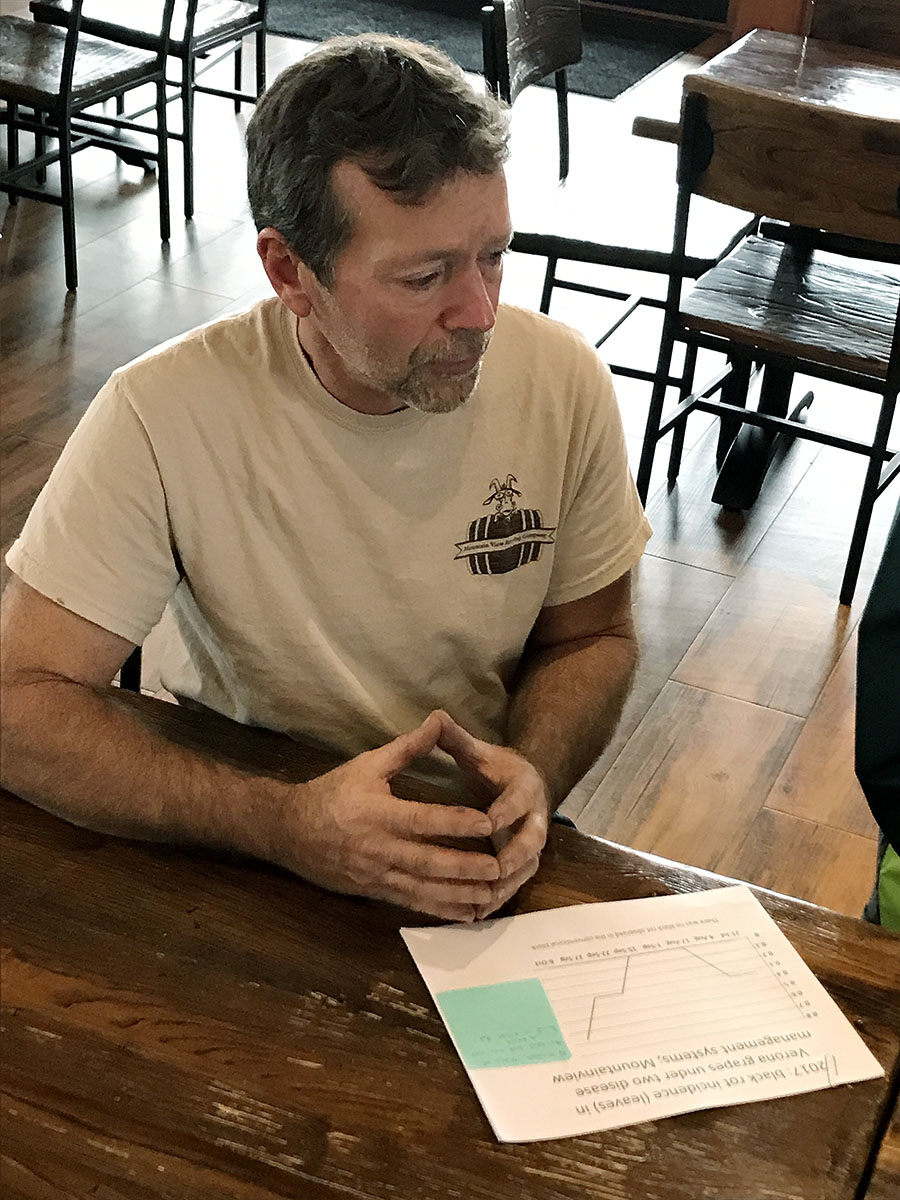
The Results
We were thrilled with the results! The Verona plot showed no downy mildew and less than 1% of black rot. The control block showed no black rot and less than 1% of downy mildew.
These results are fascinating and we think they prove that Verona has excellent potential in our region.
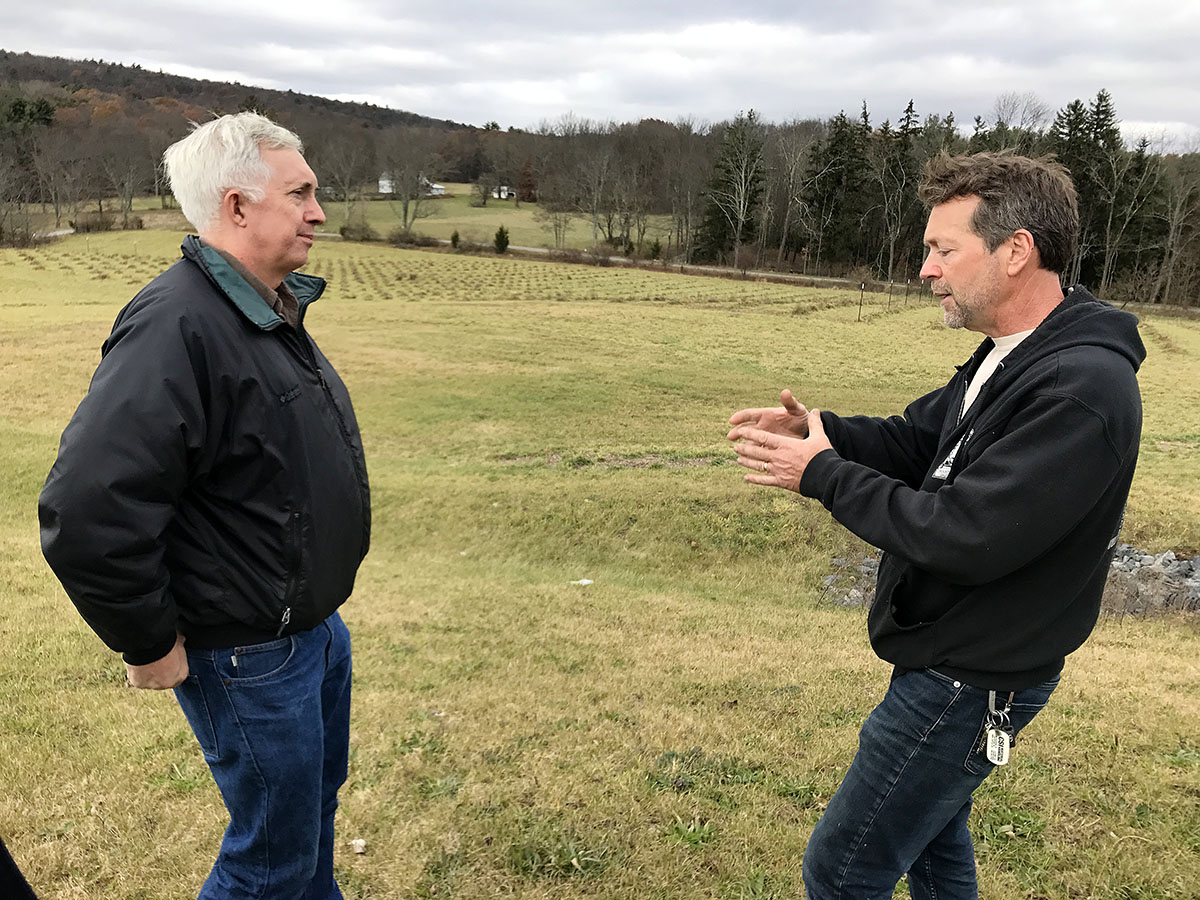
Field Day
Representatives from the Brodhead Watershed Association and Northampton Community College joined us for a field day to learn about the results and what they might mean for the community.
They were all impressed with the experiment's results and, like us, believe we should continue to study this grape.
What's Next
It will be two more years before the Verona vines are mature enough to produce wine grapes.
We are hoping to continue our data collection over the next two years so we can deliver a comprehensive report on the life of an organically grown Verona vine in Pennsylvania.
If the project continues on the path that it started, it will change the Pennsylvania wine industry and that is something we're very excited about!
Share this Post

